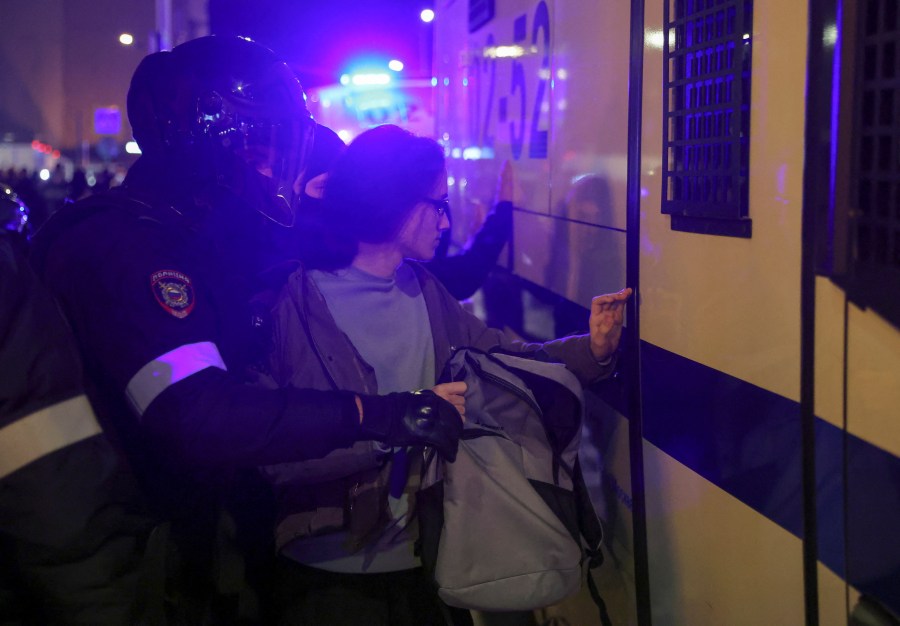Russian woman arrested after protesting war for 7 seconds
(NewsNation) — Yulia Zhivtsova was only out protesting Russia’s partial mobilization for the war in Ukraine for seven seconds when she was arrested.
“You just take out this sign and you are in the police car. Right?” she said on NewsNation’s “Morning in America.” “It’s very slick.”
It’s not her first time being arrested for speaking out against the Russia-Ukraine War, and she wasn’t the only one. The Guardian reports more than 1,300 people in Russia were detained at nationwide protests on Wednesday, as “unsanctioned rallies” are illegal under Russia’s anti-protest laws.
Zhivtsova says she’s been protesting “since day one” — Feb. 24, when Russia first invaded Ukraine.
While protests have become less frequent as the war grinds on, Russian President Vladimir Putin ordering a partial mobilization of reservists in Russia gave them a new energy, Zhivtsova said.
Officials said the total number of reservists could be as high as 300,000. Large numbers of Russians have already rushed to book one-way tickets out of the country because of the mobilization, causing flights to fill up and ticket prices to skyrocket. Many are driven by fears Russia’s border could close, or that Putin could announce a broader call-up sending more Russian men to the front lines.
“Nobody wants their fathers, their brothers, their family go to war,” Zhivtsova said.
Zhivtsova herself has a 14-year-old son. While he’s still not at the age where he will have to fight, Zhivtsova is growing nervous as he gets older.
“It was his birthday yesterday, and it suddenly struck me that that’s the age where Russian teenagers get that first passport,” she said. “I was like, ‘Oh, my God, he’s an adult now. So how soon is his turn?’ So yeah, that was a bit horrifying.”
Before, protesters had been trying to protect the Ukrainians — “Everyone was appalled by the fact that we have to fight each other, our neighbor,” Zhivtsova said. Now, she said, Russian anti-war activists know they don’t just have to fight for the Ukrainians — but for their fellow citizens as well.
“It changes the situation dramatically,” Zhivtsova said. “And if I can somehow motivate the other people also to go out, that’s what I do.”
The most recent protest was Zhivtsova’s fourth time being arrested. She said the first time people get arrested for protesting, they usually just get hit with a fine. As the arrests go up, however, so do the consequences, including higher fines and possible jail, or even prison, time.
Zhivtsova’s appealing a couple of her past arrests, so, “They don’t take effect yet.”
“Two days ago, I wasn’t really facing prison, but I’m not sure about next time,” she said.
The Associated Press contributed to this story.


















